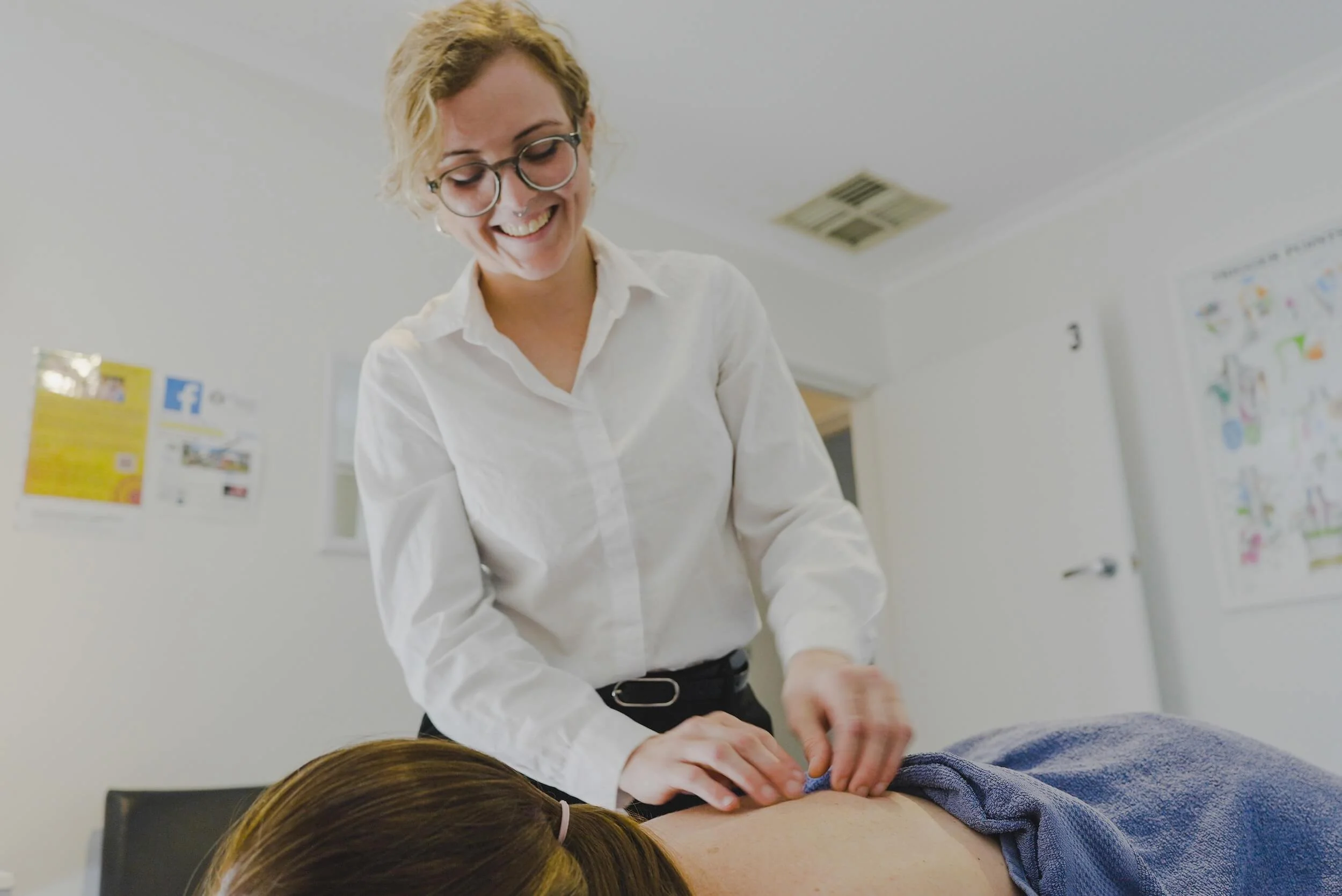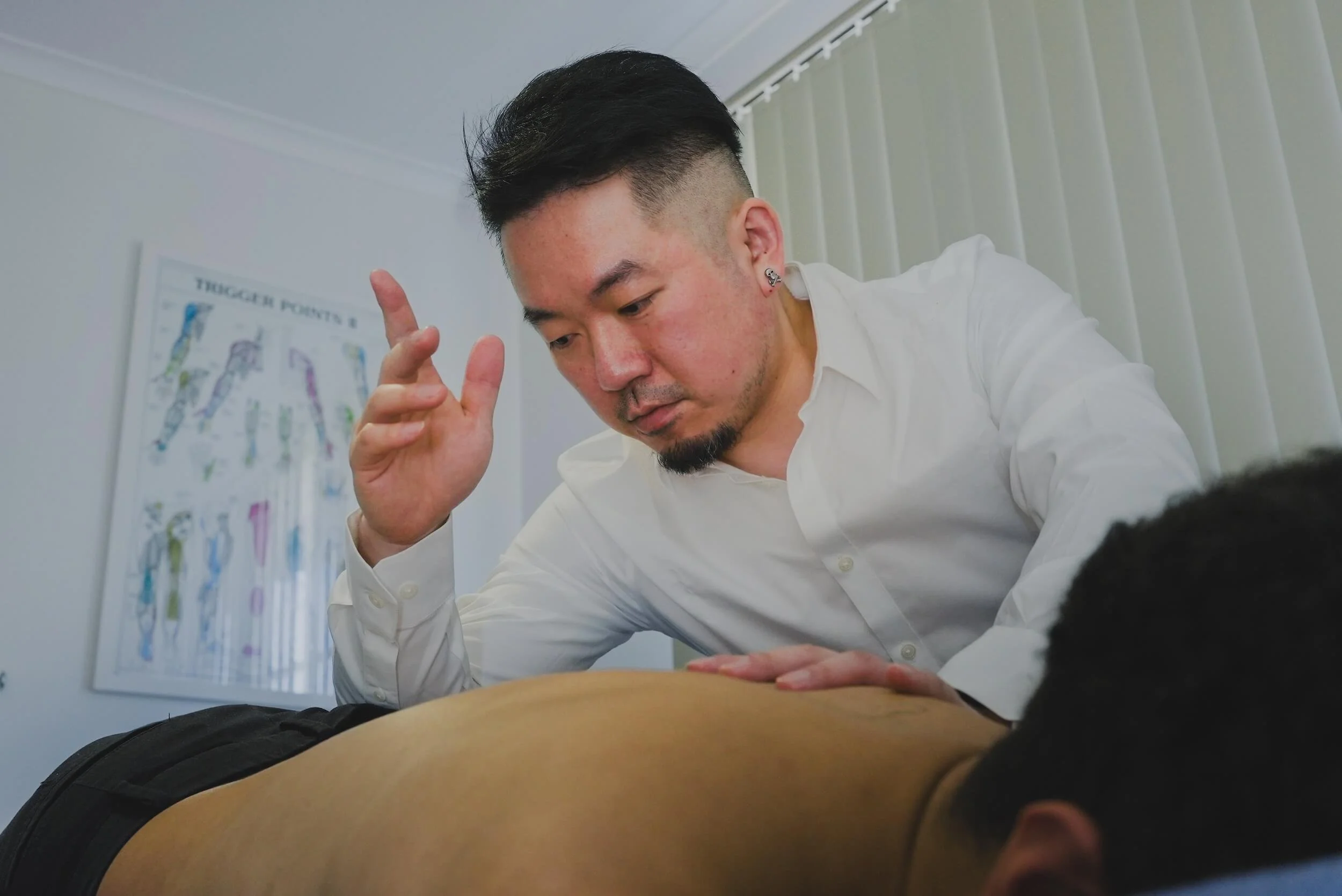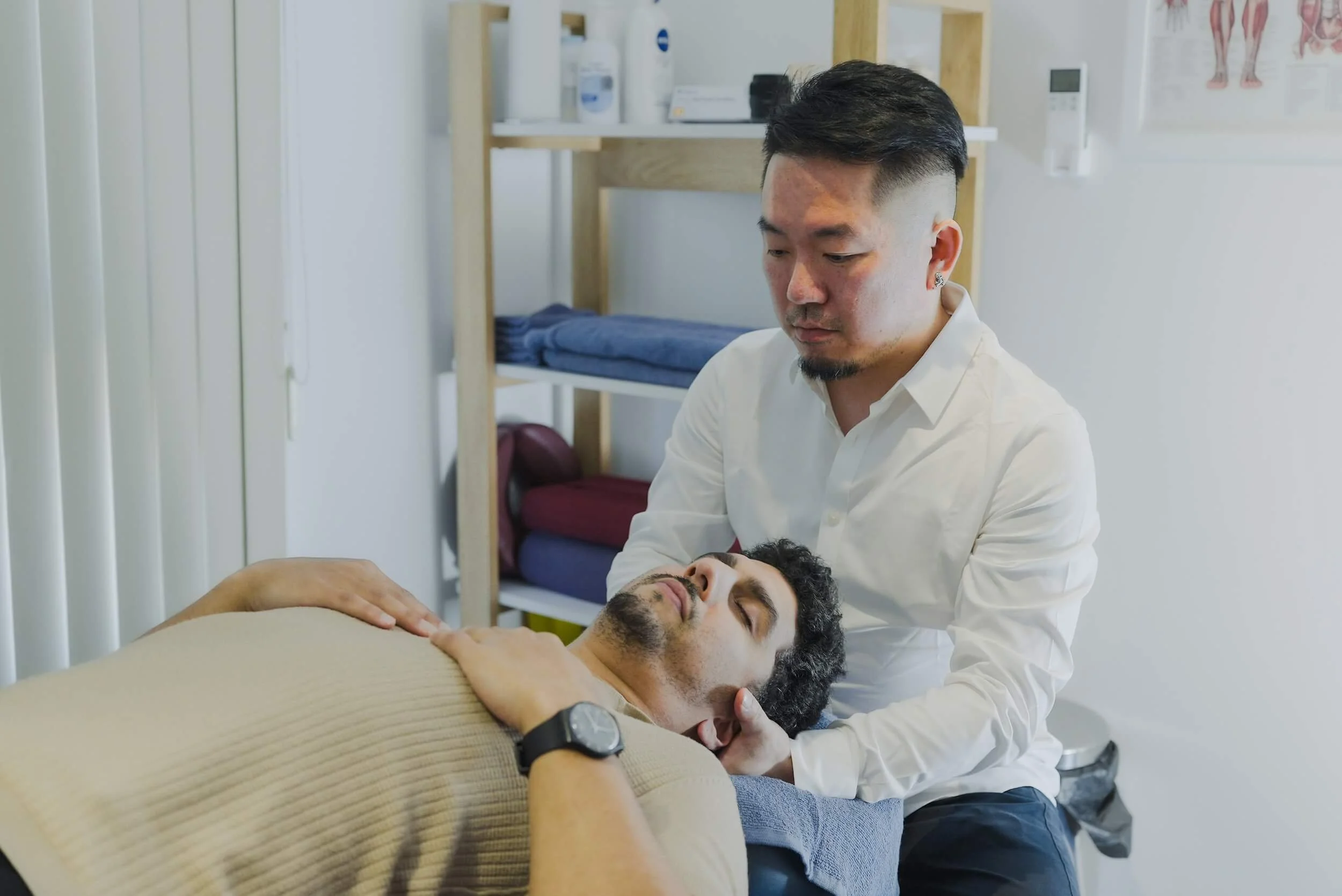
Remedial Massage Therapy In Boronia
Targeted, hands-on care to support muscle health, movement, and recovery.
Remedial massage therapy focuses on assessing and treating muscle tension, soft tissue restriction, and movement-related discomfort that can impact daily life, work, or physical activity.
At Bergamo Chiropractic and Nutrition Centre, remedial massage therapy is delivered with a clear purpose, to support function, recovery, and overall musculoskeletal health. Our therapists take the time to understand your presentation and tailor care to your individual needs, whether you are managing an acute issue or ongoing muscular tension.
Our approach to remedial massage
Remedial massage at BCNC is not a generic relaxation service. Each session begins with an assessment of muscle tone, movement, and contributing factors, allowing treatment to be targeted and purposeful.
Techniques are selected based on your needs and may vary over time as your body responds. Where appropriate, therapists may provide guidance on stretching, movement, or self-care to support the effects of treatment between sessions.
Our focus is on supporting sustainable improvements in muscle function rather than temporary relief alone.
When remedial massage therapy may be helpful
Remedial massage therapy may be suitable for people experiencing:
Muscle tightness or soreness
Work-related or postural strain
Sporting or exercise-related injuries
Reduced flexibility or movement
Ongoing muscular tension contributing to discomfort
Recovery support alongside other treatments
Care is always adapted to your comfort level and presentation.
Frequently Asked Questions
-
Remedial massage should be effective without being unnecessarily uncomfortable. Therapists adjust pressure and techniques to suit your comfort and needs.
-
No referral is required to book a remedial massage appointment.
-
Yes, most private health insurances cover Remedial Massage Therapy.
We provide on-the-spot claiming with the use of Hicaps for fast processing of your private health insurance claims, as patients simply pay the gap on the consultation.
The rebate varies with different funds and the level of your extras cover. We recommend you speak to your health insurance provider if you want to determine your actual gap payment.
Remedial Massage and Myotherapy generally fall under the same category, and we recommend you contact your health provider if you are unsure about cover.
The centre also works with GPs with the Chronic Disease Management Plan (CDM). The new medicare allied health item means for suitable patients they would have a rebate of $53.80 for up to five consultations, depending on what is allocated by your GP.This medicare benefit only applies for complex, chronic spinal cases.
-
Remedial massage therapy may be suitable for:
Adults of all ages
Individuals with acute or ongoing muscular concerns
People seeking support alongside chiropractic or rehabilitation care
Those wanting to improve movement and muscle function
If you are unsure whether remedial massage therapy is appropriate for your situation, our team can help guide you.
-
Yes. Remedial massage therapy is commonly combined with other services offered at BCNC when appropriate.
-
A trigger point is a tight area within muscle tissue that causes pain in other parts of the body. A trigger point in the neck may then cause referral pain to the head, creating headaches. The pain may be sharp and intense or of a dull ache nature. Our Remedial Massage Therapist is best placed to resolve any triggers in your body.
-
An initial consultation will run for 60 minutes.
Subsequent follow up consultations will be either 30 or 60 minutes, depending on the individual patient’s needs and will be guided by your remedial massage therapist.
A half-hour appointment allows time for a partial massage session, such as neck and shoulders, back or legs and feet.
You can download our new patient form from here.
If you are looking for professional remedial massage therapy in Boronia or the surrounding Knox area, our team is here to support you. Contact Bergamo Chiropractic and Nutrition Centre to book an appointment or to speak with our friendly reception team.




